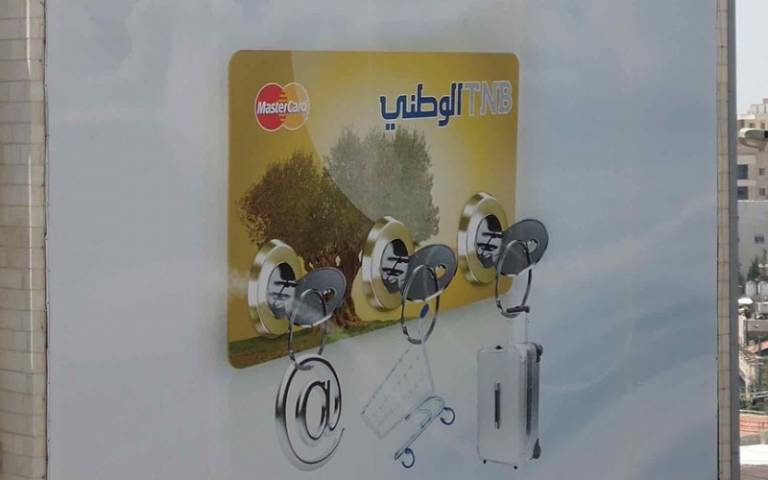Transforming Financial Inclusion to Finance Inclusive Prosperity in Ramallah, Palestine
Exploring how current processes of financial inclusion (FI) can be transformed to create inclusive prosperity that reflects community priorities

27 October 2022
This research will explore how current processes of financial inclusion (FI) can be transformed to create inclusive prosperity that reflects community priorities. We know little about how communities experience existing top-down state and private sector-led processes of FI, and how such processes connect with community understandings of prosperity - what they really value and consider a 'good life'. The research will examine the relationship between FI and prosperity in Palestine, where FI can be studied in 'real life'. A National Strategy for Financial Inclusion 2018-2025, heavily shaped by global institutions like the World Bank, GIZ and the Alliance for Financial Inclusion (AFI), was recently launched and challenges to realising inclusive prosperity are significant because of the Israeli Occupation. This extreme case will be beneficial for assessing the limits of existing theories (of FI) and developing new concepts. A co-produced research process will (1) use ethnographic methods to evaluate the impact of FI on people's lives in Ramallah, where financial institutions and services in Palestine are concentrated; (2) record and use community driven understandings of prosperity to build a prosperity index - a tool that allows academics and governments to better engage citizens' perspectives and create locally salient pathways to prosperity. Insights from ethnographic research and the prosperity index will be combined to generate a new conceptual articulation of financing prosperity. They will also be the basis for policy insights and an institutional secondment that transforms existing FI policies and practices to better meet people's aspirations.
Aims
1. Assess how existing FI policies and practices impact people's lived experiences.
2. Use community visions of prosperity to transform practices of FI so they are better able to achieve such prosperity.
Objectives
(i) analyse how global, regional and state FI policies and practices shape experiences of FI in Ramallah, Palestine by undertaking desk-based research.
(ii) evaluate how people's everyday lives are impacted by FI by conducting ethnographic research in Ramallah, Palestine.
(iii) co-produce a local definition of prosperity in Ramallah, Palestine through community-based research.
(iv) build a prosperity index for Ramallah using the community-derived definition of prosperity, which provides new kinds of data for scholars, municipal and national state and private sector actors.
(v) map out pathways to more inclusive and sustainable prosperity by combining data from ethnographic research and the prosperity index.
(vi) embed those pathways in existing FI processes through a secondment at the Palestine Monetary Authority and the publication of policy briefing papers.
(vii) disseminate findings more widely through the Alliance for Financial Inclusion's annual global policy forum, academic conferences and publications.
The research will benefit academics by generating a new conceptual articulation of financing prosperity, based on original insights about the relationship between FI, inclusive prosperity and lived experiences of colonialism. This new conceptual articulation will rethink FI and bridge the divide between scholarly and policy communities and approaches in this area.
The research will benefit Palestinian users by training community members in social science research methods, enabling them to independently organise and conduct research. The research co-production process and prosperity index will provide new data about contextual-specific understandings of prosperity that will enable Palestinian governance institutions to better understand the challenges and aspirations of the communities they govern. Global and regional FI policy makers will benefit from learning about how FI practices and policies can be re-tooled to create genuinely inclusive prosperity.
Outputs
Dr Harker co-authored two studies of financial inclusion, commissioned by the National Committee for Financial Inclusion in Palestine, which assess the financial inclusion process and the gendered dimensions of that process in 2022. The reports argue that the Israeli Occupation, labour market conditions and patriarchal structures are key barriers to financial inclusion in Palestine, particularly for women. The key recommendation is to develop a model of critical financial inclusion by establishing a public/cooperative banking network, incorporating citizen researchers into policy making processes and making research data openly available to all.
Copies of the two reports can be accessed here:
Financial Inclusion Diagnostic Report – A Summary
Gender Roadmap to Enhance Financial Inclusion
 Close
Close


